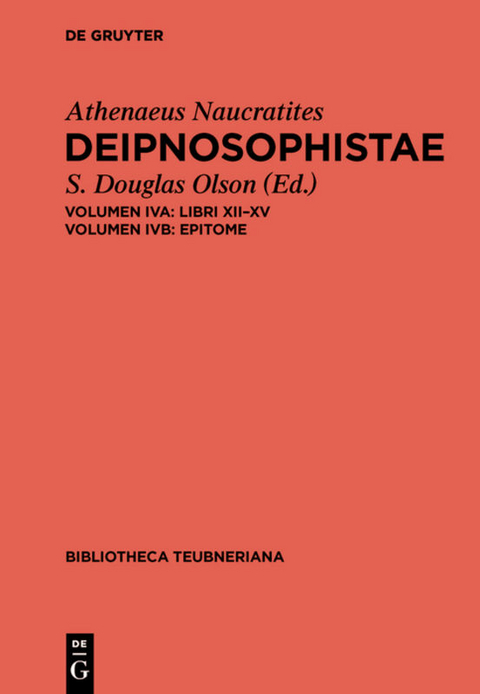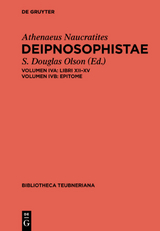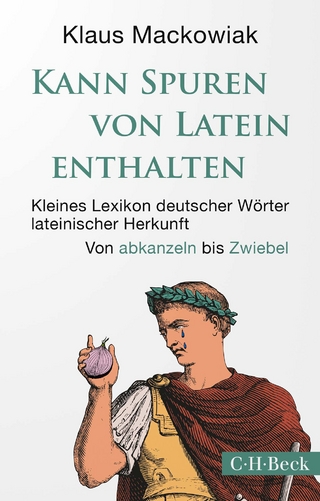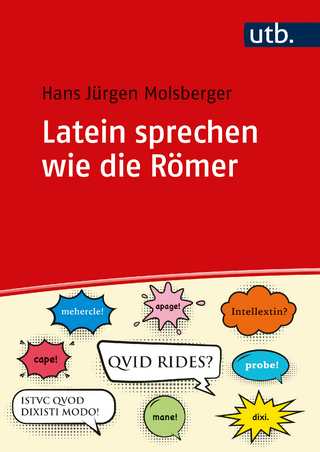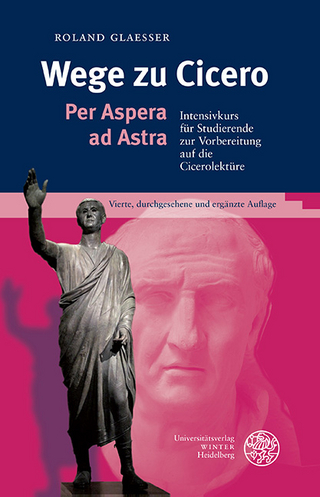Athenaeus Naucratites: Deipnosophistae / A: Libri XII-XV. B: Epitome
Die Bibliotheca Teubneriana, gegründet 1849, ist die weltweit älteste, traditionsreichste und umfangreichste Editionsreihe griechischer und lateinischer Literatur von der Antike bis zur Neuzeit. Pro Jahr erscheinen 4-5 neue Editionen. Sämtliche Ausgaben werden durch eine lateinische oder englische Praefatio ergänzt. Die wissenschaftliche Betreuung der Reihe obliegt einem Team anerkannter Philologen: Gian Biagio Conte (Scuola Normale Superiore di Pisa)Marcus Deufert (Universität Leipzig)James Diggle (University of Cambridge)Donald J. Mastronarde (University of California, Berkeley)Franco Montanari (Università di Genova)Heinz-Günther Nesselrath (Georg-August-Universität Göttingen)Oliver Primavesi (Ludwig-Maximilians Universität München)Michael D. Reeve (University of Cambridge)Richard J. Tarrant (Harvard University) Vergriffene Titel werden als Print-on-Demand-Nachdrucke wieder verfügbar gemacht. Zudem werden alle Neuerscheinungen der Bibliotheca Teubneriana parallel zur gedruckten Ausgabe auch als eBook angeboten. Die älteren Bände werden sukzessive ebenfalls als eBook bereitgestellt.Falls Sie einen vergriffenen Titel bestellen möchten, der noch nicht als Print-on-Demand angeboten wird, schreiben Sie uns an: Kerstin.Haensch@degruyter.com Sämtliche in der Bibliotheca Teubneriana erschienenen Editionen lateinischer Texte sind in der Datenbank BTL Online elektronisch verfügbar.
Athenaeus' Deipnosophists (The Learned Banqueters) is a major Imperial period Greek text in and of itself, but also a source of thousands of fragments by hundreds of authors, many of whom would otherwise be entirely unknown to us. This is the first full new critical edition of the text since that of Georg Kaibel well over a hundred years ago. Kaibel’s text is outdated in many ways, including in the fact that most of the authors Athenaeus preserves have been reedited since Kaibel’s time, making his fragment-numbers and the like unhelpful. Perhaps more important, Kaibel undervalued the Epitome manuscripts, which he thought had no independent significance for the constitution of the text. He accordingly reported them poorly, citing only one at a time and making it impossible to determine which of their readings are merely careless independent errors and which might be important. Kaibel also undertook to edit Athenaeus’ comic fragments in particular at the same time he was editing Athenaeus, producing nominally much-improved texts that tell us what a 19th-century editor believed that 5th- and 4th-century BCE poets ought to have written, but obscuring what the tradition itself tells us. The new edition is based on a full collation of the manuscripts, including not just Venetus Marcianus 447 (A, the sole surviving witness to the complete text) and the various Epitome manuscripts, but also a number of 15th-century hybrid versions of Athenaeus already known in Kaibel’s time but ignored by him. Systematic review of the latter set of manuscripts, as well as of early editions also ignored by Kaibel, has allowed numerous conjectures to be reassigned, radically altering our sense of the Early Modern history of the text. A separate, parallel edition of the Epitome, replacing that of Simon Peppink and including an important version of the anonymous On the Sources of the Nile, is also included. Additional volumes offer extensive documentation of cognate or derivative material in authors such as Aelian, Eustathius (who had his own copy of the Epitome and refers to it constantly) and the Suda (which quotes a number of passages from the first three Books where A is damaged and only the Epitome survives), as well as a full set of indices. Ordinary readers will benefit from updated references to the fragments of lost authors that Athenaeus preserves, as well as from a fuller and more accurate apparatus criticus keyed to the now-standard editions of such authors and genres. Editors, meanwhile, are offered a text of Athenaeus and of the material he preserves that reports not what 17th- to 19th-century editors believed fragmentary poets and prose-authors ought to have written, but what the tradition preserves. This now becomes the standard text of the Deipnosophistae and a basic reference work.
| Erscheinungsdatum | 24.10.2019 |
|---|---|
| Reihe/Serie | Athenaeus Naucratites: Deipnosophistae ; Volumen IV | Bibliotheca scriptorum Graecorum et Romanorum Teubneriana |
| Verlagsort | Berlin/Boston |
| Sprache | Greek, Ancient (to 1453) |
| Maße | 155 x 230 mm |
| Gewicht | 1058 g |
| Themenwelt | Geisteswissenschaften ► Sprach- / Literaturwissenschaft ► Latein / Altgriechisch |
| Naturwissenschaften ► Biologie ► Biochemie | |
| Schlagworte | Athenaeus • Athenaios • Deipnosophistai • Fragmente • Fragments |
| ISBN-10 | 3-11-055853-X / 311055853X |
| ISBN-13 | 978-3-11-055853-1 / 9783110558531 |
| Zustand | Neuware |
| Haben Sie eine Frage zum Produkt? |
aus dem Bereich
